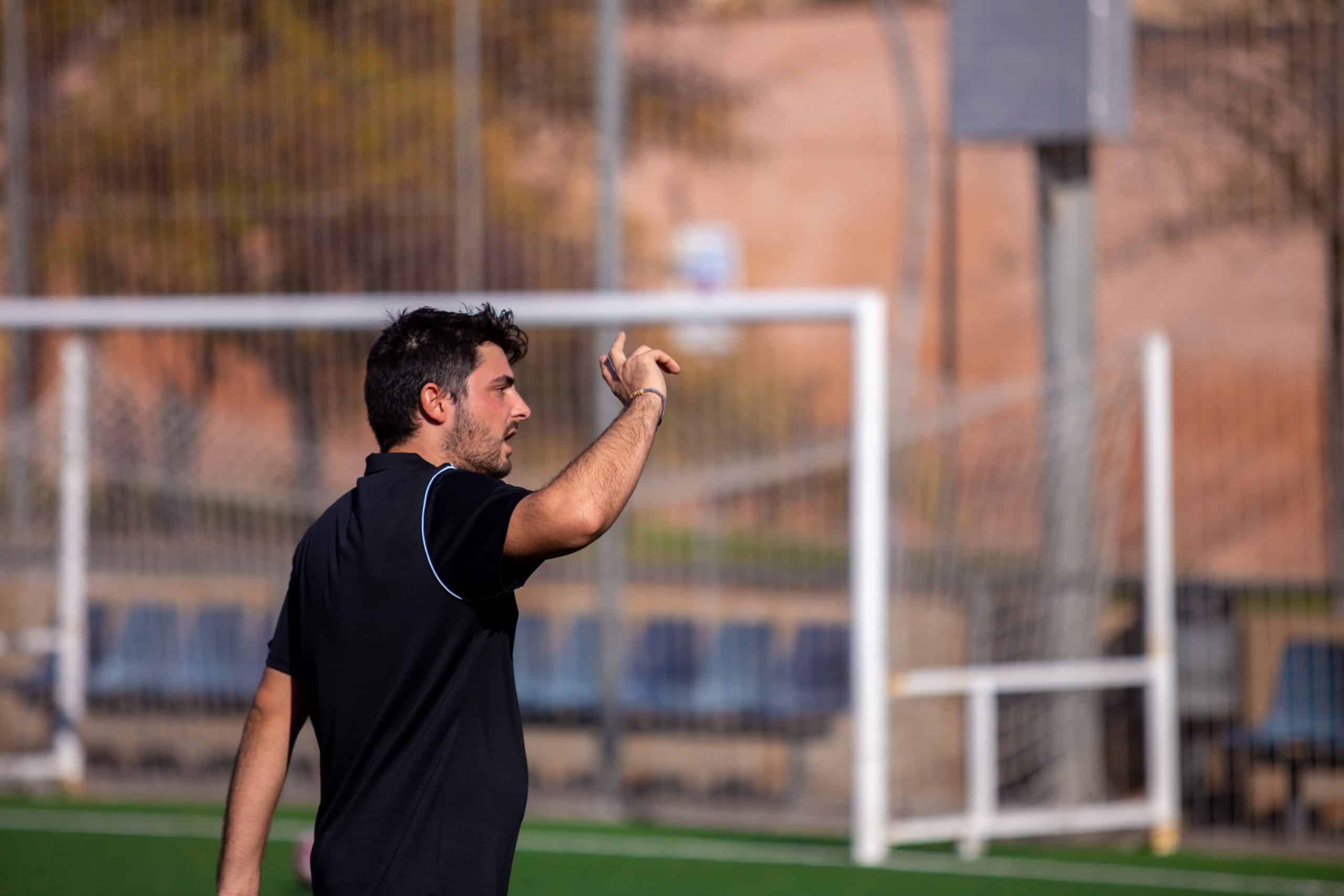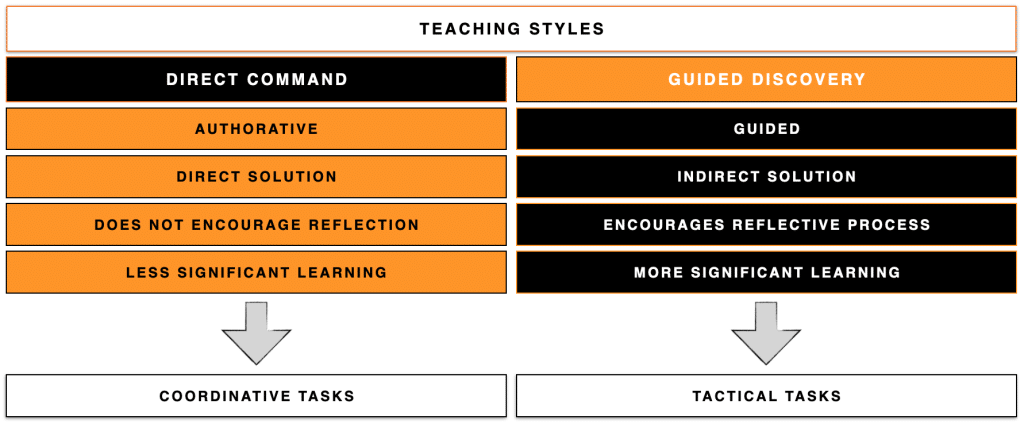During training, the coach can use a variety of ways to communicate with their players. To ensure that the young players’ learning is as meaningful as possible, it is essential to:
– Be clear about the content and the task to be carried out.
– Select an optimal didactic strategy that allows the objectives to be trained in the best way.
– Use the appropriate teaching style.
But what is a teaching style?
According to Delgado Noguera: a teaching style is a mode or form adopted by the didactic relationships between the personal elements of the teaching-learning process, both at a technical and communicative level and at the level of organisation of the class group (team) and its affective relationships, depending on the decisions taken by the teacher (coach).
MBP understands that there are two main teaching styles that are fundamental in the development of football players: direct command and guided discovery. In the following, we will describe in detail these two styles, their characteristics, advantages and disadvantages, as well as their impact on player development.
Direct Command
Firstly, direct command is an authoritarian teaching style, where the main objective of the coach is the solution of the problem that the player is experiencing at that precise moment, through a direct order or indication. The use of such a style bypasses and does not encourage the reflective process of the player when faced with new situations. However, it ensures effectiveness in terms of problem solving, thereby minimising creativity and understanding of the game.
Guided Discovery
On the other hand, guided discovery is the antithesis of direct command, where the figure of the coach is to guide in the solution of the problem, as at no time will the coach give the solution to them. In this case, the coach will encourage the reflective process of the player with the aim of generating a more meaningful and long-term experience and learning.
When to use one or the other?
For tasks of a coordinative nature, direct command will be used. In this type of exercise, it is not necessary for the player to reflect on ‘how’ to implement a Basic or Specific Motor Skill, but to experience as many times as possible that action in the way we ask them to do it.
The aim is to refine their coordination structure through repetition and precision, ensuring that the player develops a solid foundation in their fundamental skills. This approach allows for immediate and effective error correction, ensuring that players acquire the necessary skills quickly and efficiently.
In tactical tasks, the use of guided discovery will be employed in order to enhance the player’s reflective phase and understanding of the game. This style of teaching encourages critical thinking and autonomous decision making, allowing players to better understand the dynamics of the game and the specific situations that arise on the field.
When faced with tactical challenges, the individual learns to analyse the context, evaluate the available options and choose the best solution independently. This not only enhances their ability to solve problems in the game, but also develops their creativity and adaptability, crucial skills for optimal performance in football.
Conclusion
MBP School of Coaches aims to encourage the use of guided discovery from a certain stage of game understanding. The aim is to develop intelligent, autonomous, effective and efficient football players through meaningful and lasting tactical learning.
Even so, it will be important to use different training styles that offer other resources depending on the need of the player and the moment within the teaching/learning process.
Do you want to be an expert in youth football?
In the Expert in Youth Football online course, you will learn to identify, understand, and transport to the sporting reality the psycho-pedagogical principles of football training in the formative stage. You will learn the MBP methodology in depth, mastering how to plan, according to the evolutionary stage of your players, the different content and concepts throughout the season, and design and implement the different didactic strategies that represent them.
You will understand how to integrate the role of the coach in the formation of values. You will also learn to adopt an evolutionary vision of physical preparation, focusing on the psychomotor development of players, to contextualize the conditional work within the technical, tactical, and collective game training. You will also be able to identify the bases of sensory training and its operation from evaluative techniques focused on the creation of metacognitive learning.
Ultimately, you will learn to observe the game with tactical intentions and to use a game model suitable for all the different youth ages in football.
Click here for more information








